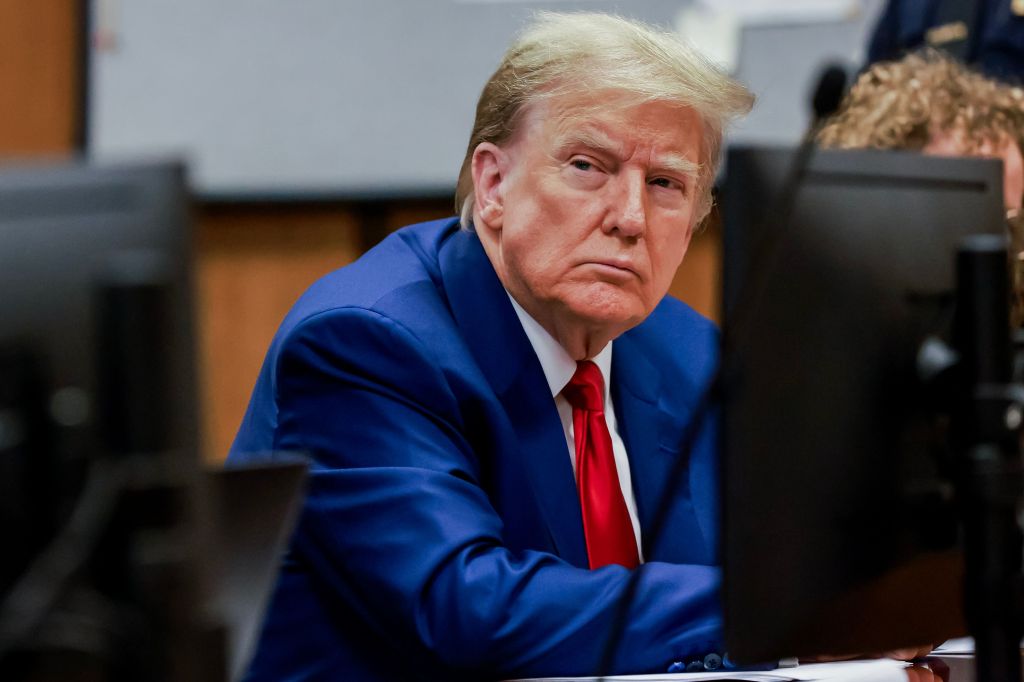WASHINGTON – Troops could be forced to make the awkward decision of either ignoring orders from the commander-in-chief or breaking US law should the Supreme Court grant former President Donald Trump’s motion to dismiss his DC case based on presidential immunity, a group of 19 former senior military officials wrote in an amicus brief submitted Monday.
While Trump’s attorneys are arguing that presidential immunity protects US presidents from criminal prosecution for actions taken in office, the group of former service branch secretaries and retired four-star officers argued in court documents that the move would put troops “in the impossible position of having to choose between following their Commander-in-Chief and obeying the laws enacted by Congress.”
That’s because while the president would be considered immune from prosecution, those carrying out illegal actions under the president’s orders would face criminal charges, essentially passing the legal consequences onto troops, said the group, which includes leaders who have “served under each president from John F. Kennedy to Donald J. Trump.”

“Petitioner’s theory that the president is absolutely immune from criminal prosecution, if accepted, has the potential to severely undermine the commander-in-chief’s legal and moral authority to lead the military forces, as it would signal that they – but not he – must obey the rule of law,” the former senior military officials wrote.
Here’s the latest coverage of Donald Trump’s $355M civil fraud trial ruling
While the Military Code of Justice holds that troops must decline unlawful orders, the group argued that siding with Trump could unfairly force service members into the uncomfortable position of rebuking the leader of the free world or facing jail time.
“Under this theory, the president could, with impunity, direct his national security appointees to, in turn, direct members of the military to execute plainly unlawful orders, placing those in the chain of command in an untenable position and irreparably harming the trust fundamental to civil-military relations,” the group wrote.
“Our system requires trust in the Commander-in-Chief as a source of legal and moral authority to lead the
men and women of the armed forces, as at his orders they place their lives in peril to serve their country,” it added.
But Trump, 77, has claimed that “without Presidential Immunity, a President will not be able to properly function, or make decisions, in the best interest of the United States of America.”
“Presidents will always be concerned, and even paralyzed, by the prospect of wrongful prosecution and retaliation after they leave office,” he claimed in a post to Truth Social on Feb. 28.
The amicus brief comes days before the Supreme Court is set to hear oral arguments in the case set for the week of April 22.














